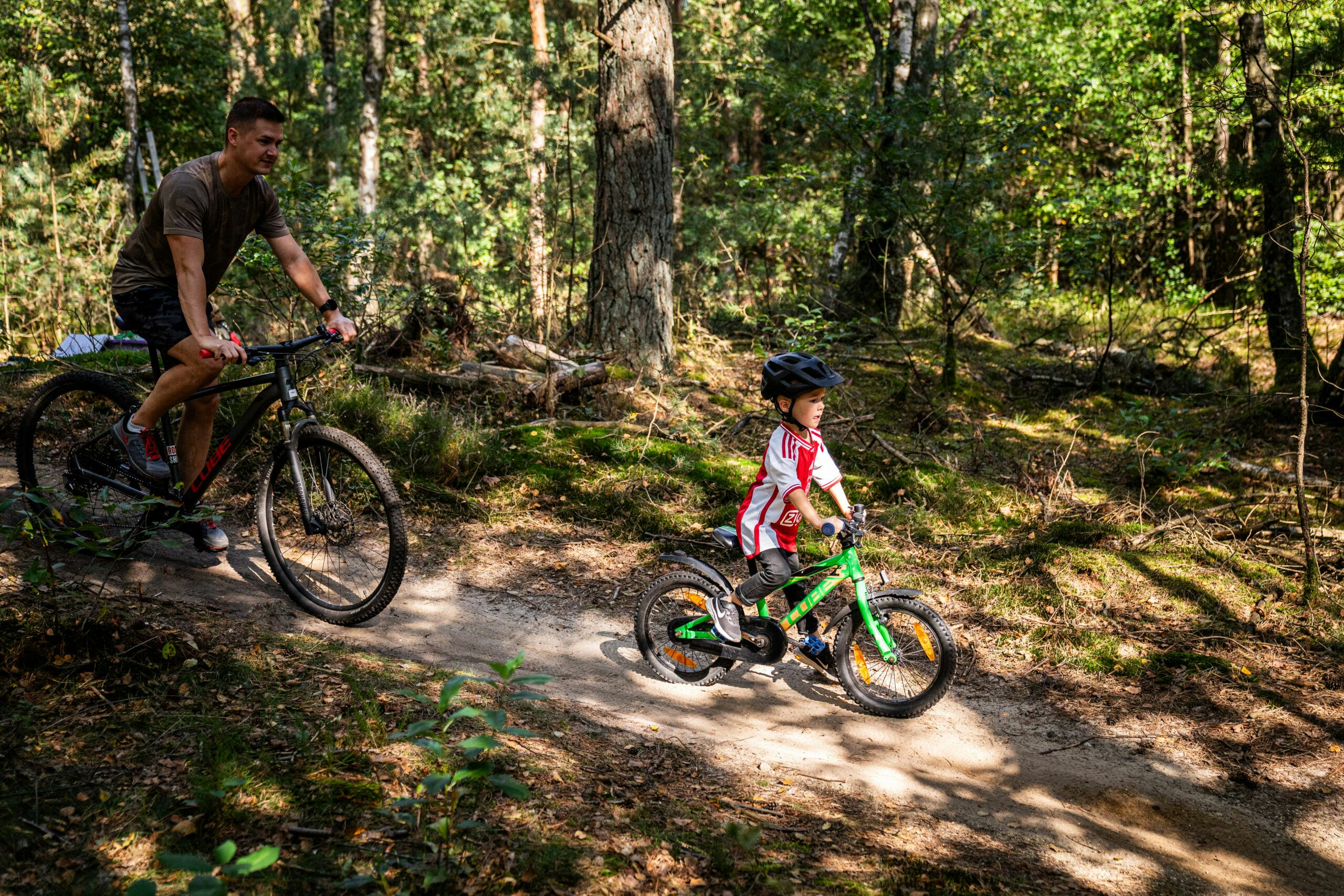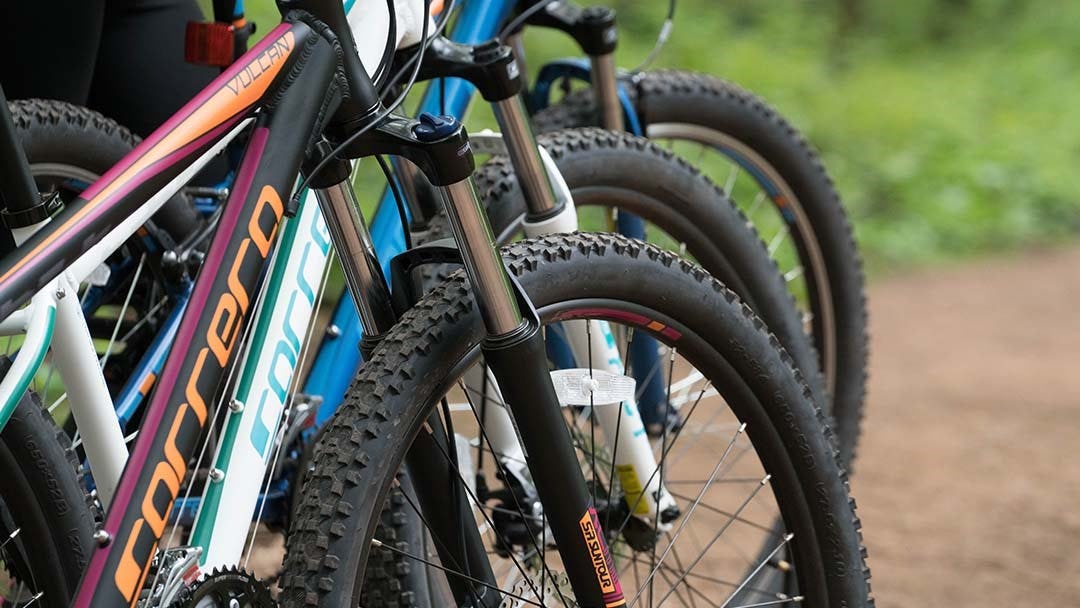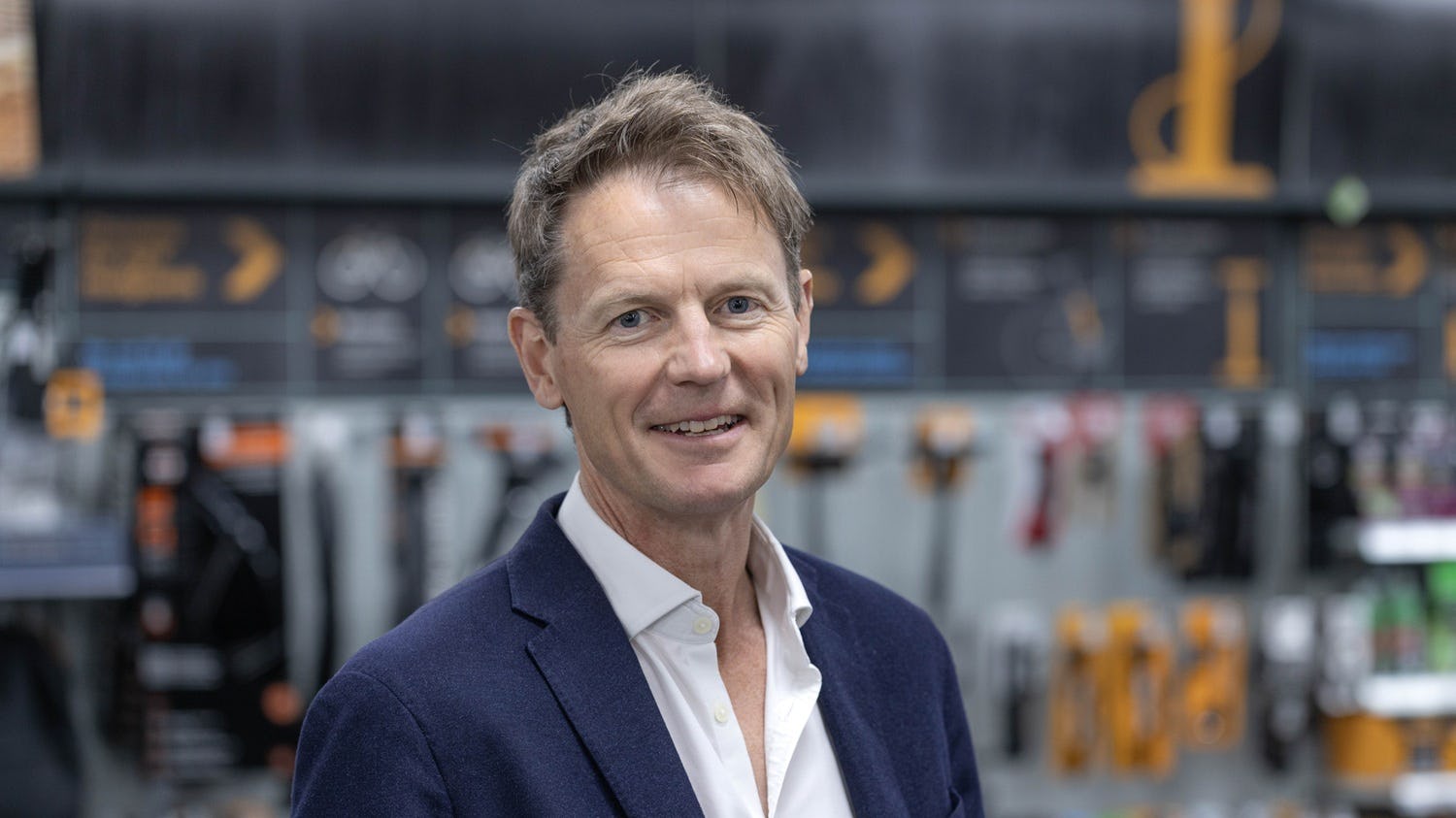Shimano, one of the world’s largest bicycle component manufacturers, considers itself a ‘value creating’ company. Founded in Japan in 1921, with a mission to be ‘Closer to nature, closer to people,’ Shimano aims to support the careful design and construction of trails to minimise their environmental impact. And it makes sense – they want consumers to experience the highest performance potential of their bicycle parts, and that means creating the safest, most sustainable setting to do that in.
A popular pastime
With mountain biking rising in popularity around the world, it’s clear that more trails need to be built, and those that are already available, need to be maintained in the least impactful way. This means more skilled builders are required to plan, design, construct and maintain them.
Yet despite the enthusiasm of volunteers, it isn’t always so straightforward. Jonathan Davis, PR & communications manager explains: “Trail developments in Europe are complex for those who build and maintain them, and they can have a hard time securing approvals. For example, they might build a trail, and then a tree falls over because of a storm. In some countries, that would be the fault of nature so it rarely has implications, but in other cases, it could result in legal challenges that last a decade or may even result in a trail being closed down. So, this can really discourage and hold people back.”

Moving forward together
Recognising the complexities of sustainable trail management, Shimano has joined forces with the International Mountain Bike Association. IMBA are able to identify priority projects, train volunteers in the latest methods of trail building via their DIRTT project, and offer support in terms of handling more complex issues. “Teaming up with IMBA was necessary because each country or region has their own regulations, which means it’s a very complex landscape that we would struggle to tackle all on our own,” Ties van Dijk, head of Shimano Europe’s advocacy programme explains.
Trail developments in Europe are complex for those who build and maintain them, and they can have a hard time securing approvals”
Many volunteers have a difficult time building and maintaining trails in Europe as it can be hard to get permission from local councils, and getting financial support is even harder. It can also be challenging to increase the skills and knowledge needed around sustainable trail management. IMBA can help with this and more as well as approaching certain stakeholders.
Control the flow
With or without legal trails, people will still go mountain biking, so it’s often better to try to control the flow of riders to an area where the impact is limited. Shimano includes this in the trails they support, and they only support responsibly built trails where the wildlife and local ecosystems are protected. “If we can raise the level of resources, knowledge and expertise so that they can go about doing it in the right way, then that’s a win-win situation for everyone,” says van Dijk.

The Trail Born Fund
The cost of building a safe trail can range anywhere from 10,000 to 45,000 USD per kilometre. This significant amount includes everything from obtaining permits to conducting impact studies and paying for tools, materials and labour.
The Trail Born Fund, allocating 10 million USD over a period of 10 years, aims to create and maintain cycling routes for riders around the globe that are both safe and sustainable. Whether it be in a national park or a local recreational area, the objective is to encourage riders of all ages, levels and backgrounds, including women and young children, to hop on their bikes.
Our motto has always been to promote health and happiness through the enjoyment of nature and the world around us”
In fact, it was Shimano’s financial backing that contributed towards maintaining mountain bike routes for children in various locations across the Netherlands in 2023. But they have also funded new bike park jump lines alongside, for example, Helfare owner and Red Bull mountain bike free-rider, Matt Jones. The company has also built three routes in Zona Zero of the Pyrenees in Spain, as well as committed to three trail projects with Andrew Neethling, Downhill champion in South Africa.
Promoting health and happiness
“Our motto has always been to promote health and happiness through the enjoyment of nature and the world around us,” van Dijk says, “because we strongly believe that if we get more kids on bikes, more people out in the open, exploring nature, it will positively impact their day-to-day life too, from less sick days at work to opting to ride to school instead of taking the bus.”
The first Trail Born Fund projects are set to be announced in March 2025. They will initially focus on Europe and North America, with plans to expand to Oceania, Asia, Africa, Central and South America very soon.
This article is sponsored by Shimano.











